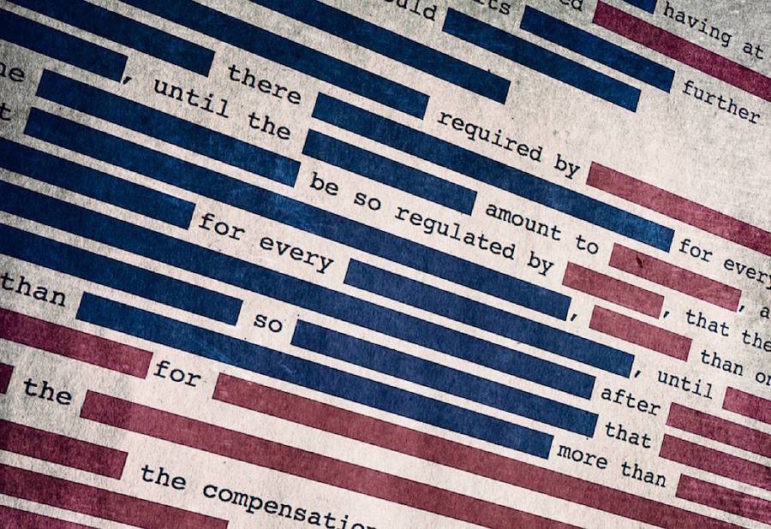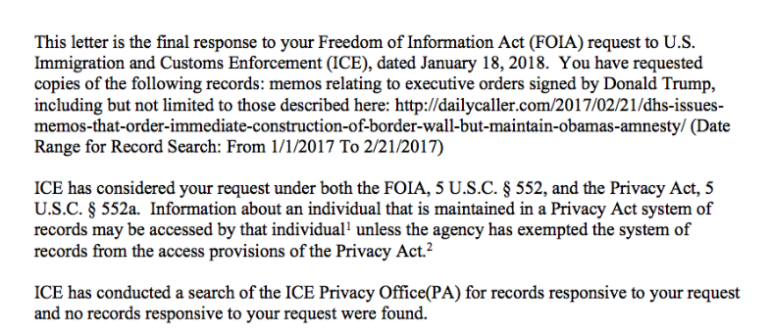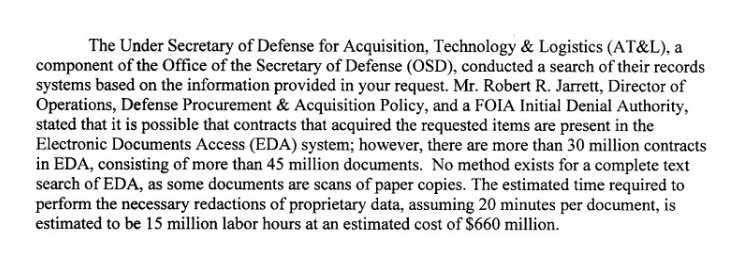

Image: Jared Rodriguez / Truthout
A Funny Thing Happened on Our Way to FOIA

Image: Jared Rodriguez / Truthout
After nine years and over 60,000 requests, MuckRock — the Massachusetts-based news site that specializes in using the US Freedom of Information Act (FOIA) — has been witness to some pretty impressive efforts to keep public information from the public. In the spirit of Sunshine Week, they compiled some of the weirdest, wildest and downright hilarious redactions they’ve received since launching in 2010.
This Looks Like a Job for ████████!
In a release of records related to Scientology, the FBI included a short, fictionalized dialogue between a former member of the Church and “the star reporter of The Daily Planet.” Though the Bureau redacted the reporter’s name, citing their right to privacy, it’s not that hard to guess that our intrepid interviewer is Clark Kent — better known as the alter-ego of Superman.

The ever-vigilant FBI, keeping us safe from sunlight-seeking supervillains, yet again.
Office Politics
In response to a request for emails related to a now-infamous video showing Federal Communications Commission Chairman Ajit Pai doing the Harlem Shake to downplay the importance Net Neutrality, the agency at first rejected the request in its entirety, saying that releasing that information would have a “chilling effect” on the Federal Communications Commission’s ability to perform its duties. After an appeal, the agency released redacted versions of the emails citing the same exemption. After that was appealed, the FCC, likely fearing a lawsuit, finally released unredacted copies revealing that it had spent the last year trying to prevent the release of an email that simply stated “OK.”

Perhaps there were concerns that the period came off as passive-aggressive.
Why Is It Always the Last Place You Look?
After 17 months of exhaustive searching, the US Immigration and Customs Enforcement closed out a FOIA request for memos related to President Donald Trump’s proposed border wall, stating that no such records could be found.
 While we can’t say for sure where ICE was looking during that year and a half, we do know where they didn’t check — their own website, where it turns out the documents had been posted in plain sight.
While we can’t say for sure where ICE was looking during that year and a half, we do know where they didn’t check — their own website, where it turns out the documents had been posted in plain sight.
The $660 Million FOIA Request
In response to a request about how many of a certain type of forensic device the Pentagon’s Office of the Secretary of Defense had in their possession, the agency’s FOIA office responded that the only way to determine that would be to search every active contract. And since those contracts aren’t sufficiently configured for text search, and all contracts would have to be properly processed and redacted, that would take an estimated “15 million labor hours” and cost somewhere around $660 million.

While we unfortunately did not have the millions or millennium to spare, what we did have was a request for the same information sent to a different department in the Pentagon. That office sent an email to the actual person responsible for these devices, who physically checked and determined there were, in fact, three. The whole thing probably took about ten minutes. But hey, who among us hasn’t been off by a few centuries?
Lost and Found and Lost and Found (But Not Anytime Soon)
After activist Frank Wilkinson’s 132,000 page FBI file — released after a long and contentious lawsuit — went missing, a request was sent to the FBI for his records. Following a puzzling initial response that they didn’t have anything, the FBI directed us to the National Archives — who in turn, told us to talk to the FBI. Finally, after months of back and forth, an archivist at the National Archives was able to track down the material. But there was just one catch — if we wanted them released, we’d have to get bumped to the “second track” tier, which is capped at 1,000 pages a year. When asked to confirm if that meant re-releasing this previously released file would take over a century, the archivist helpfully responded “quite about.”

Incidentally, there’s some fascinating case law around leaving FOIA requests to next of kin.
And Much More
Of course, it’s not just the federal government that gets creative when it comes to the public records process. At the state and local level, we’ve seen:
• A police department in Brockton, Massachusetts, responded to a request for records on the use of drones by law enforcement with images of UFOs and instructions on how to fold paper planes.
• In Brunswick, Maine, a town clerk claimed that simply opening an email served as an agreement to pay $750 in public records processing fees.
• The New Jersey Department of Agriculture denied a request for the results of an autopsy on a dolphin which had died in the Jersey river by citing the dolphin’s right to medical privacy.
• The Seattle Mayor’s office responded to a request for text messages by photocopying a phone.
• The Washington State Fusion Center caused an uproar after accidentally including in a records response an email forward they had received about mind control technology.
This post originally appeared on MuckRock and is reproduced here with permission.
 JPat Brown is the executive editor of MuckRock, a nonprofit collaborative news site devoted to giving the public tools to keep the US government transparent and accountable. Founded in 2010, MuckRock assists journalists, researchers, activists and citizens in filing requests, using the released documents to create original investigative reports and analysis.
JPat Brown is the executive editor of MuckRock, a nonprofit collaborative news site devoted to giving the public tools to keep the US government transparent and accountable. Founded in 2010, MuckRock assists journalists, researchers, activists and citizens in filing requests, using the released documents to create original investigative reports and analysis.









